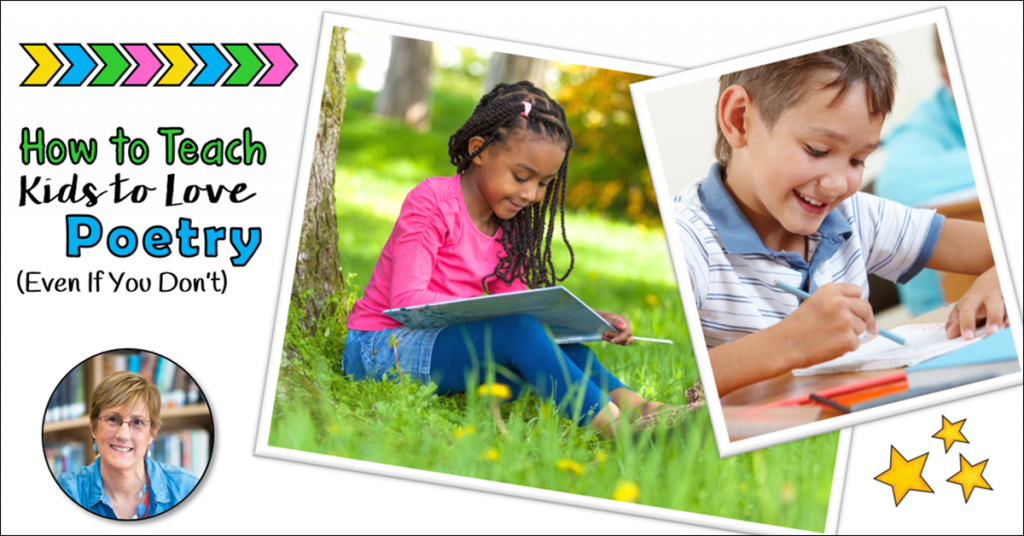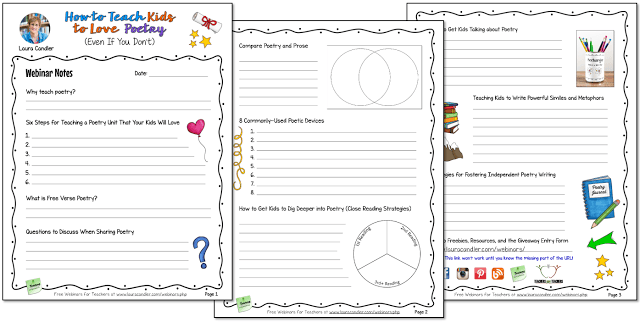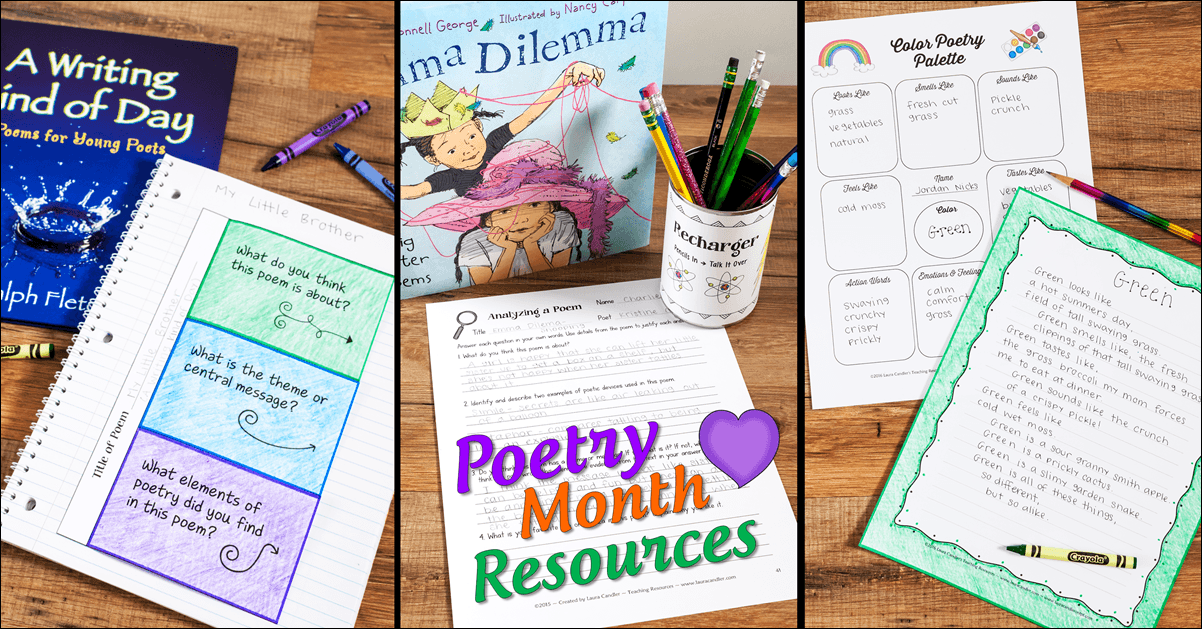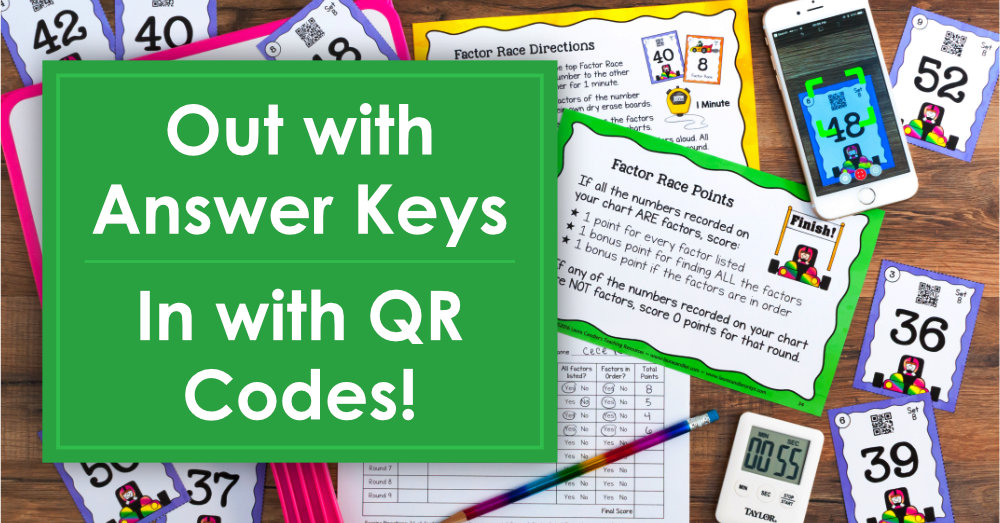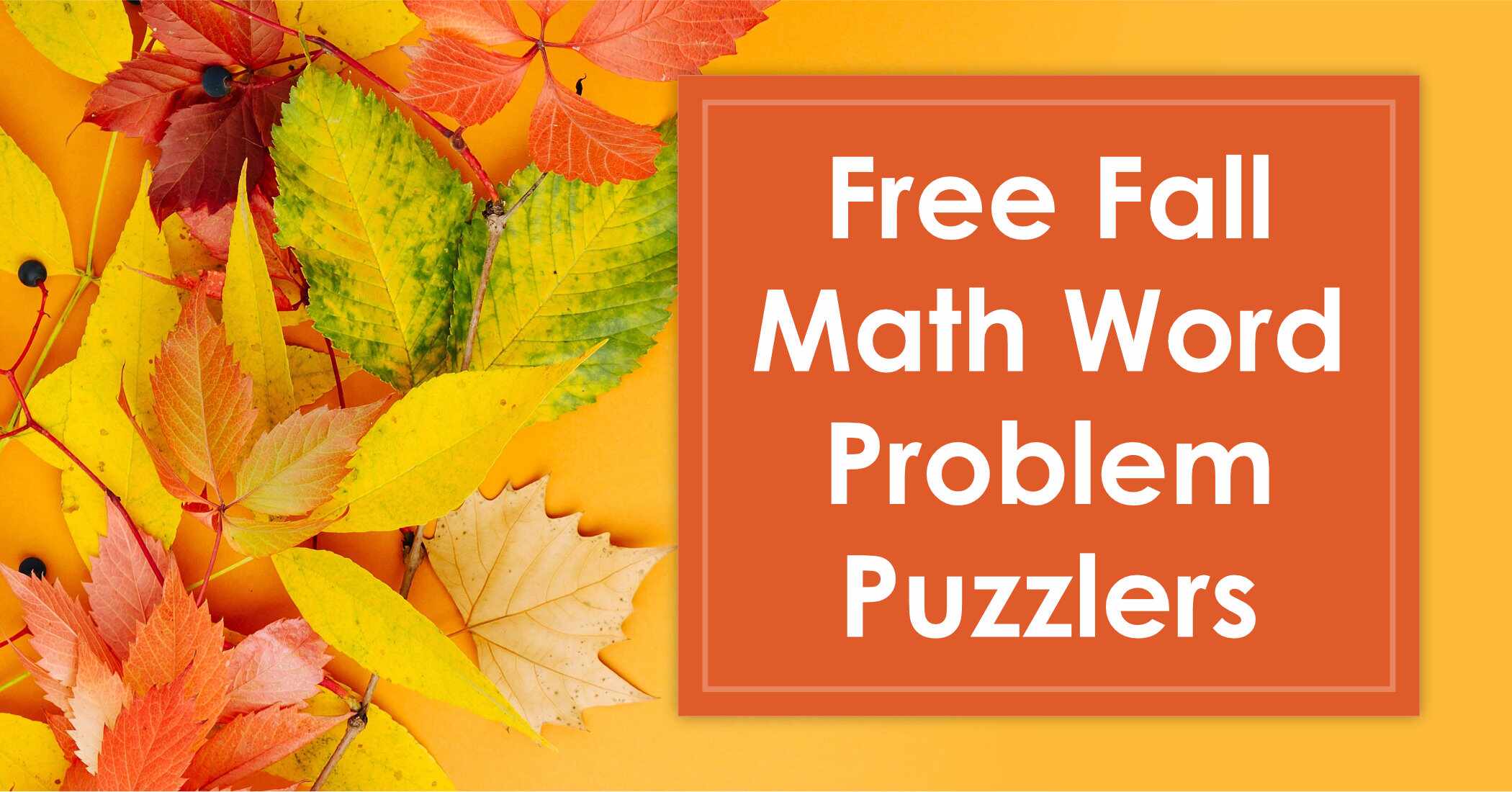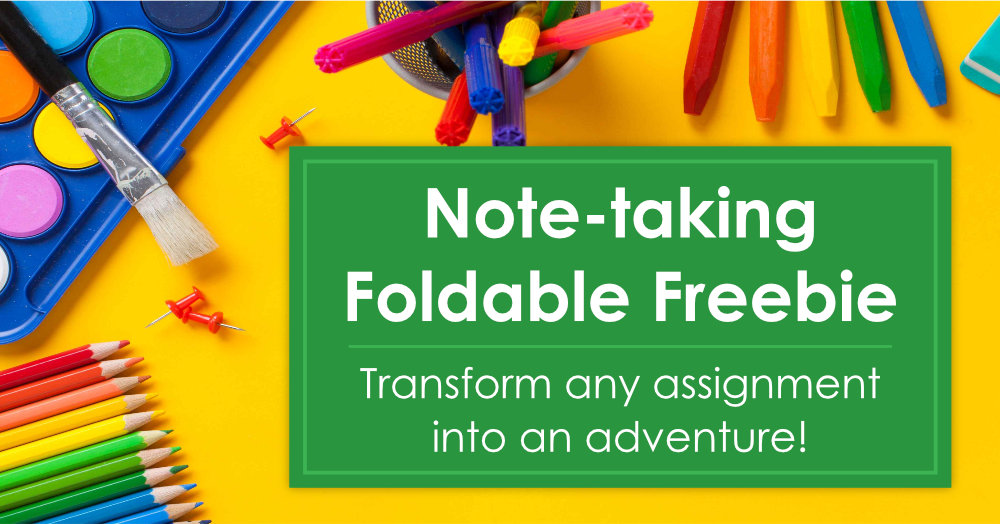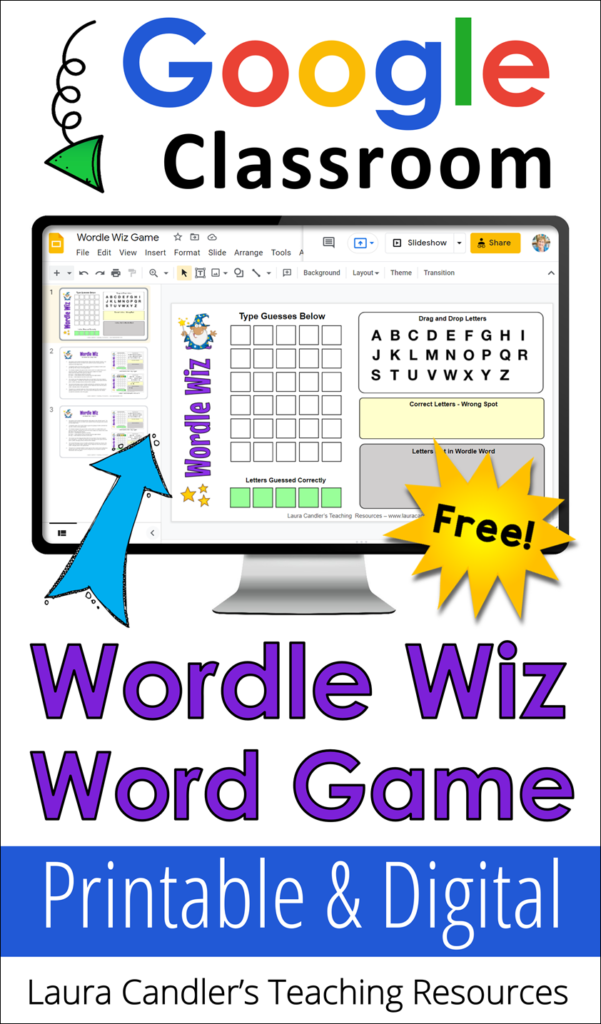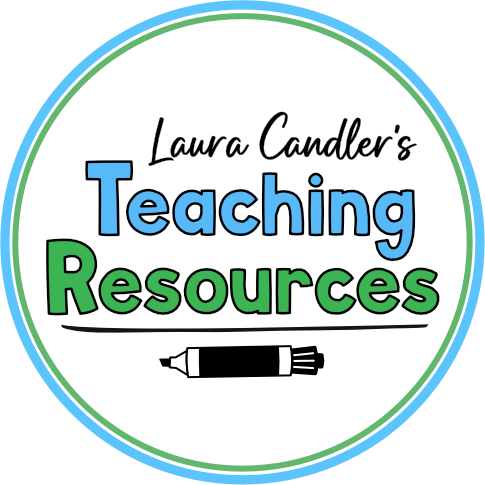April is National Poetry Month! When you saw those words, what was your first reaction? You might have been thinking, “Yay! I love poetry, and now I have an excuse to teach it!”
But more likely you were thinking, “Yikes! Is it that time already? Poetry is so boring and hard to teach, and my students don’t like it either. How will I fit poetry lessons into my already packed schedule!”
No matter how you feel about poetry, if you’re an upper elementary teacher, you probably have to teach it at some point during the year. Poetry is included in most reading curriculums, and almost every standardized reading test has at least a few poems. Even if your students aren’t tested on poetry, there are many reasons to teach it. Just think about the amount figurative language used in poetry, and you’ll understand how learning to read and write poetry can improve comprehension of other types of text, too.
The good news is that even if you don’t enjoy poetry yourself, it’s easy to teach it in a way that will have your students begging for more!
If you don’t believe me, I hope you’ll watch the replay of my webinar, How to Teach Kids to Love Poetry (Even If You’t Don’t). Every time I present this training, teachers tell me that watching the webinar totally changed the way they feel about teaching poetry. Instead of dreading their next poetry unit, they are actually excited to get started!
Before I tell you more about the webinar, I’d like you to reflect on your own feelings about poetry and consider why you feel the way you do. This might seem like an unusual request, but after reading this post, I think you’ll see why it’s important.
What I’ve discovered is that whether you love poetry or you’d rather walk across a bed of hot coals than teach it, the way you feel about poetry now is a direct result of your early experiences with it. I’ll admit that the study of poetry can be dry and boring, but it can also be vibrant and exciting when it’s taught as a form of self-expression. Read the two scenarios below and ask yourself which one is most like your own experiences learning poetry.
The Best of Poetry
If you enjoy poetry and you like teaching it, your first experiences were probably relaxed, playful and fun. Discussions about poetry focused on personal responses, and you talked about the beauty of the language, noticed the musical quality of the words, or discussed how poetry made you feel. You learned that poems don’t have to rhyme and often break the rules of grammar, and if you were encouraged to write poetry, you probably wrote free verse.
Free verse poems are so easy to write that almost anyone can compose them, even kids who normally struggle to write sentences and paragraphs. To see what I mean, read Corn Husks below, a poem written by one of my former 5th grade students while on our “Private Eye Poetry” field trip. I wrote a grant for a class set of Private Eye magnifying lenses, and later arranged to take my students to the local park to observe nature up close and write poetry. The students spent the first hour collecting items and using their private eyes to observe them, and the second hour was spent writing poems about the treasures they found. Anthony was fascinated with dried corn husks, and he wrote this beautiful comparison poem about what he observed.
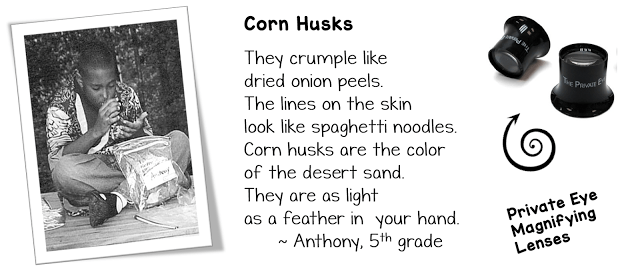
The Worst of Poetry
Not everyone has been lucky enough to learn about poetry this way; in fact, most students have only seen the worst of poetry. If your early memories consist of painful and humiliating attempts to memorize and recite poetry in front of the class, it’s no wonder you want to avoid it at all costs! Were you forced to analyze each and every poem to uncover its “true” meaning? If so, I’ll bet you were frustrated when your interpretation was different from your teacher’s, and you were told that yours was wrong. If you were given poetry-writing assignments, your poems probably had to rhyme which meant never being able to write in your own voice. Writing rhyming poetry is an art, and it’s not something that comes naturally to adults or children. Inexperienced writers often end up replacing powerful words with weak ones just because they rhyme, so their poems sound boring and contrived.
So, did you experience the best of poetry or the worst of poetry as a student? If you don’t like poetry, are you starting to realize why you don’t like it? This is why I wanted to you to explore how you came to feel the way you do about poetry. Which of the two scenarios would you like your students to experience? Poems don’t have to rhyme, and they don’t have to be dry and boring. If that’s what you’ve experienced up until now, let me introduce a whole new way of thinking about poetry and teaching it to your students! After you implement some of these strategies, you might even be surprised to learn that you actually like teaching poetry!
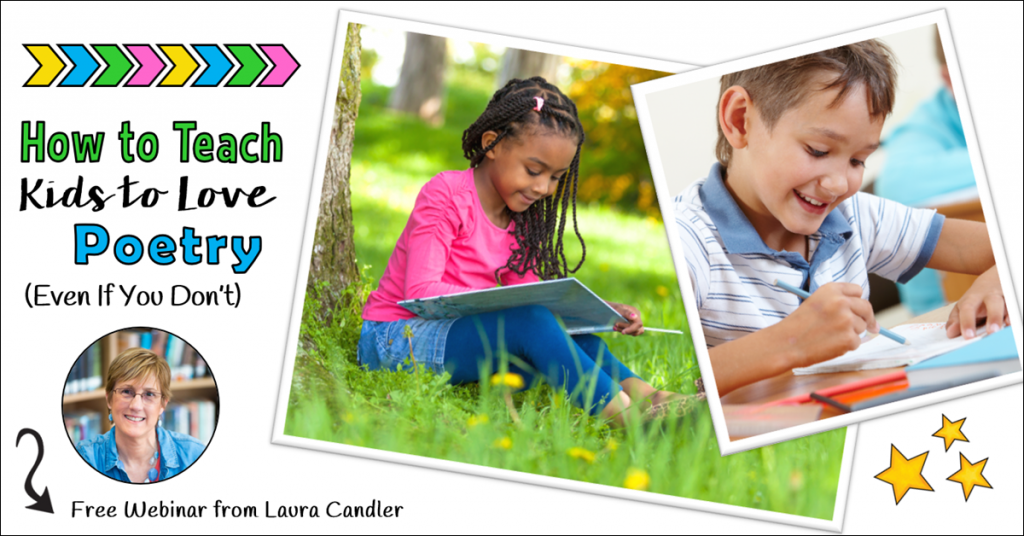
Free Webinar: How to Teach Kids to Love Poetry (Even If You Don’t)
I’ve been sharing poetry resources with teachers for a long time, but until last year, I had never explained how to each a poetry unit from beginning to end. Frankly, I worried that trying to write out the complete, the step-by-step directions for a poetry unit would result in a 3-inch thick document that no one would have time to read!
Then last April, I had a flash of insight when I realized poetry would be the perfect topic to teach during a webinar! The format would give me a way to explain the steps and strategies in great detail, and I could also answer questions at the end of the live session.
I immediately set to work developing my webinar, How to Teach Kids to Love Poetry (Even if You Don’t), and it was a joy to be able to share exactly how I teach poetry, step by step. The webinar has been hit each time I’ve presented it, and it’s equally popular with teachers who love poetry and those who don’t… or those who didn’t enjoy it in the past!
I don’t have another live webinar scheduled, but you can watch a free replay right here on Teaching Resources. My free webinars don’t include a professional development certificate, but you can obtain a PD certificate by purchasing my How to Teach Poetry Webinar PD pack or my Poetry Webinar Bundle. Both products include a PD certificate, the poetry webinar slides in a printable PDF format, a downloadable video to watch offline, and an audio replay.
What You’ll Learn in the Poetry Webinar
If you’re wondering what cover in this webinar, download the How to Teach Poetry webinar handouts from my TpT store now and take a look. While you’re there, read the comments and testimonials from teachers who attended the webinar in the past, and I think you’ll see why I’m so excited to share this information with you! Whether or not you actually take notes, the handouts provide a nice outline of what you can expect to learn in this session:
- Why it’s important to teach poetry
- A 6-step plan for teaching an entire poetry unit
- What free verse poetry is and how it differs from other forms of poetry
- My favorite poetry books to read aloud and share with your students
- Questions to guide your poetry discussions
- How to teach kids the difference between poetry and prose
- 8 commonly-used poetic devices and how to teach them
- A quick and easy close reading strategy for teaching kids to dig deeper into poetry
- How to get kids talking about poetry
- Strategies for teaching kids to write powerful similes and metaphors
- A simple, step-by-step method for writing color poems
- How to transform reluctant writers into enthusiastic poets
Ready to Teach Your BEST Poetry Unit Ever?
Get started by watching the free replay of How to Teach Kids to Love Poetry (Even If You Don’t)? I feel confident that after implementing the step-by-step plan described in the webinar, you’ll actually begin to enjoy teaching poetry. Best of all, your students will discover the best of poetry instead of the worst, and before you know it, they’ll be reading and writing poetry with enthusiasm!

